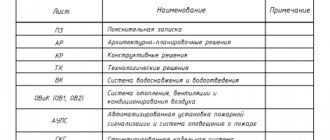Pets are often kept in apartment buildings. This is not prohibited by law. However, the legislation establishes certain restrictions and requirements for keeping animals, walking them, and caring for them:
- an animal in an apartment building should not disturb neighbors;
- sanitary and hygienic standards for their content must be met;
- follow the rules for owners with their pets in public places;
- animals must undergo regular veterinary examinations and be vaccinated against rabies and other diseases;
- showing cruelty to pets, not providing them with food, drink, or treatment is unacceptable.
Each region may have its own rules, but the above requirements must be strictly followed everywhere.
The legislative framework
The Federal Law on the Responsible Treatment of Animals takes into account the rules of behavior and treatment of a pet, the rights and responsibilities of the owner of a particular breed of dog.
The law is based on treating your pet with respect. The owner must perceive him as a creature who can be scared and in pain and who claims to be treated appropriately and have his needs met.
The law defines the owner as the owner or other person who keeps a pet. At the same time, the rules for dog breeds that are potentially dangerous are prescribed in a separate paragraph.
Monitoring compliance with these regulations is carried out by any organizations or unions that take on such responsibility. A list of such organizations can be found on the local government website.
Penalties
The rights of officials authorized to exercise state supervision in the field of treatment of animals are enshrined in Chapter. 5 tbsp. 23 parts 1 and 2. If the bill gains the force of a full-fledged law, representatives of the executive branch will be able to:
- Send written requests for documents necessary to carry out the inspection.
- Freely inspect private territories, buildings, structures, premises and other places where animals are kept, upon presentation of an employee's ID and a copy of the order (instruction) of the head or his deputy.
- Issue orders to individuals and legal entities obliging them to eliminate violations in the field of treatment of pets and monitor the timely execution of orders.
- In case of refusal of assistance, transfer the case to the internal affairs bodies.
- Seize animals.
- File a claim for compensation for damage caused due to failure to comply with mandatory requirements in the field of handling pets.
Careless owners who do not take care of their dogs will fall into the risk category. For violations, they will be subject to disciplinary, administrative, civil and criminal penalties.
Registration rules
Pet registration is offered to owners of all dogs, but while this is not a requirement for companion dogs, registration is mandatory for fighting breed dogs. This procedure is also useful because if a pet goes missing, an organized search will be organized.
If you purchase or sell a dog, you must report this to any nearby veterinary institution that belongs to your place of residence.
If the animal is missing, the veterinary institution will help organize a search. If a puppy is purchased or taken into care by a homeless person, it is registered.
To do this, contact the house management organization at the place of registration and draw up a document, writing on the form:
- Type of pet and its breed;
- A nickname or several options to which the dog will respond;
- Age, distinctive features and gender;
- Coat color and type;
- Data on sterilization and the height of the animal at the withers.
After receiving the form, the applicant is issued a certificate of ownership and a pet tag. Registration takes a few minutes and does not require any financial investment from the dog owner. But you must pay tax for keeping and owning a pet.
Registration of dogs of potentially dangerous breeds follows a different scheme. Additional documents will be needed here.
The owner of the animal must attend a course of lectures on the rules of raising, providing and breeding dogs at the Spetskommuntrans Municipal Unitary Enterprise or a canine organization with regional or republican status.
At the end of the lectures, the owner is given a certificate or certificate. If such documents are not available, it is possible to take an urgent three-month course. Otherwise, registration will be denied.
Registration is not provided in cases where the registered animal is not provided and if the veterinarian has not given preventive vaccinations, about which a medical certificate is issued. It is necessary to show the dog so that the person in charge is convinced that the information entered in the form is correct.
At the request of the owner, the dog can be given a microchip which will contain information about the owner, the dog and the rules for handling it.
What kind of pets are considered domestic?
There is no clear concept of “pets” in the legislation.
What kind of pets can you have in your apartment? A citizen can have either a familiar cat or dog or an exotic animal - a tiger, an alligator, a python.
There are no direct prohibitions regarding the possibility of keeping such animals in the law, the main thing is that its residence in the apartment does not contradict the rules of the hostel.
When can an animal be considered a pet?
- It must be registered (a veterinary passport is issued for some animals);
- The animal must be vaccinated against rabies;
- (treatment against fleas, lichen and other dangerous diseases) must be applied to the pet
If these requirements are not met, the animal will not be considered domestic, and certain liability will be applied to its owner..
Maintenance in an apartment building
From the point of view of the law, a dog is the property of a person. That is, in fact, the same legal laws apply to the dog as to any purchased item.
As prescribed by federal law of the Russian Federation, you can only keep an animal in your own apartment. If you want to place a dog in the entrance or attic, you need to obtain permission from the general building meeting. If any of the apartment owners in your building do not agree with this decision, keeping a dog will be illegal and the neighbors have the right to complain.
Even if a pet is kept in an apartment, it should not pollute common areas in the house, that is, stairwells, entrance, local area, attic or basement.
Dogs are usually walked early in the morning, at six or seven o'clock. It should be remembered that the law prohibits a pet from barking and whining on the street or in an apartment from 22:00 to 8 in the morning. Again, neighbors can complain to the local police officer about a violation of law and order.
Is it prohibited to walk dogs in the local area? Are there any penalties for breaking the law?
The adjacent territory belongs equally to all apartment owners, and they are also responsible for the costs of maintaining it in proper condition. Knowing the rules for using the common area will help organize a civilized dog walk.
Sometimes a conversation between the district police officer and the animal owner is enough. When contacting him, a statement is written, which similarly sets out the circumstances of what is happening. The application is written in any form. You can also submit a collective complaint to the district police officer.
Is it possible to force your neighbors, whose dog alternately barks and howls, interfering with a normal life, to protect you from the discomfort that this animal causes? In our country there is a law on keeping dogs in a private house or apartment. Not everyone knows about this. But even fewer people are willing to resort to it to solve the problems caused by their neighbor’s restless dog.
Many people prefer to put up with the current situation and put up with someone’s dog constantly barking or causing other troubles. In the meantime, you can try to do something about it. This will allow you not only to provide yourself with the peace you desire, but will also clearly demonstrate to them that they are obliged to respect the rules of good neighborly relations, the freedom and rights of others.
Walking rules
To regulate the rules of walking, the federal law of the Russian Federation allocates an entire article, the provisions of which can be used by both dog owners to prove their case, and by residents of an apartment building if they have complaints.
You can walk your dog wearing a muzzle and with or without a leash, depending on the breed and height. But if you are keeping a dog of a fighting breed, you must walk it using safety measures, regardless of where the walking takes place.
In public places, you can only walk an animal with a leash, and for fighting breeds, with a muzzle. A public place is considered to be a thoroughfare, curb, square, or area near a house. Walking without a leash can be done at least thirty meters from the house, but for fighting dogs, again, only with a muzzle.
A puppy under three months old does not need to wear a muzzle, as do decorative breeds that are less than 25 centimeters tall at the withers.
When crossing the road and moving along the sidewalk, the dog must be kept on a short leash. You cannot bathe your pet on beaches near rivers, lakes and seas, as this violates the regulation on harming natural objects. If a dog pollutes public areas, the owner is obliged to immediately clean up after the pet.
Walking is prohibited on the territory of clinics, clinics and hospitals, playgrounds and cultural and developmental institutions. However, the territories of cultural institutions do not include city parks, forests and public gardens.
It is forbidden to walk a pet under the influence of alcohol or drugs, and a child under 14 years of age cannot be entrusted with walking two dogs at the same time.
As for walking fighting dog breeds, it cannot be carried out if the owner does not have a certificate of training in dog behavior or has not been registered. You cannot entrust walking to minors, incapacitated or disabled people.
Thus, the dog must be taken out of the apartment on a leash and can only be released outside the house. If she is a fighting breed, then you even need to let her go and go out with a muzzle. And when crossing the road or city streets, use a leash and bring the dog as close to you as possible.
Rooster in the country
But local courts, as it turns out, make diametrically different decisions on similar issues in different regions. So the decision of the Constitutional Court concerns not only the person who did not agree with the established practice and reached the Constitutional Court. And there he asked to check the law, with which he did not agree. Both the highest court of the country and its judges, having studied the issue, said that the person posed the problem correctly.
For the decision of the Constitutional Court, which Rossiyskaya Gazeta published on Wednesday, citizens should thank Chita resident Margarita Antsinova. It was she who asked to check Article 8.8 of the Code of Administrative Offenses of the Russian Federation. Article 8.8 provides for punishment for using a land plot for purposes other than its intended purpose.
Margarita Antsinova was fined 10 thousand rubles for raising goats, ducks and rabbits on her land, although her plot, like neighboring plots, was intended only for housing construction.
Antsinova was unable to challenge the punishment: the courts referred to the fact that “the choice of any type of permitted use of a land plot must be formalized in the manner prescribed by law, and therefore an actual change by the owner of the permitted types of its use is impossible without notification in the Unified State Register of Real Estate.”
The materials of her court case say that only documentation of the choice of an auxiliary type of use of the land plot, despite the fact that this type is provided for by the territorial zone “Zh-3”, allows the owner to legally exercise the rights provided for by the Town Planning and Land Codes of the Russian Federation.
But Margarita Antsinova herself is confident that on her land “there is a possibility of erecting buildings for keeping livestock and poultry (an auxiliary use). As a result, she has the right to independently choose any type of permitted use, including auxiliary, without additional permits and approval procedures.”
The judges of the Constitutional Court said that the existing law enforcement practice in such cases is ambiguous. And this, in turn, entails uncertainty in the issue of the possibility of bringing the owner to administrative responsibility for using a land plot not for its intended purpose. Interestingly, the authorized representatives of the authorities in the Constitutional Court also disagreed on this issue. Thus, representatives of the chambers of the Federal Assembly insisted that the types of permitted use of the site should be determined based on the provisions of urban planning regulations. On the contrary, the plenipotentiary representative of the President of the Russian Federation said that the right to choose does not replace the owner’s obligation to enter information into the register.
Sergey Knyazev , judge of the Constitutional Court of the Russian Federation:
The legislator could establish the right of the land user to independently choose an auxiliary type of permitted use of the site.
But having chosen one or the other option, the rules must be formulated so that everyone understands what to do.
If we compare not only land, but also town planning and registration legislation, it is impossible to confidently extract from there the answer to the question of whether it is necessary or not necessary to enter information into the Unified State Register of Real Estate in such a case.
Source
Host Responsibilities
The pet's living conditions and the owner's responsibilities are regulated by the third chapter of the federal law of the Russian Federation. The owner is obliged to provide an area appropriate to the size and needs of the pet. The room must have a source of daylight. This means that you cannot provide your dog with a storage area or a corner in the family room.
The owner is obliged to provide the animal with adequate nutrition, clean water, physical activity and sleep. This means that the dog must be let off a leash, at least in the apartment, and it should not be limited in food and water if this would harm its physical health.
In case of any deviations from the norm, the owner must immediately contact the veterinary service. Also, the owner must take care to prevent unwanted offspring by carrying out sterilization.
The law defines a normal place of residence for a pet if it is provided with optimal temperature and humidity conditions, well lit and ventilated, and protected from any harmful influences. The owner must observe safety measures in relation to third parties, preventing the dog from going outside without permission.
If the owner is contacted by state control authorities regarding the treatment of animals, he is obliged to provide the dog for inspection and show certificates indicating that the animal is registered and vaccinated.
The body of a deceased pet is buried in a specially designated place, or the body is transferred to organizations specializing in the burial of animals.
Conducting peace negotiations with neighbors
If you don't want or can't do anything personally to stop your neighbor's restless dog from bothering you, you'll have to talk to its owners. Often this turns out to be an effective measure that allows you to solve the problem without involving third parties and competent authorities. But it is important that the conversation be peaceful, constructive and without getting personal.
Under no circumstances start with complaints. Don’t say that you are tired of the dog, that you can sue or write a complaint to the police. Forget about threats towards your pet. Be extremely respectful and friendly, but at the same time firm in your desire to bring the conversation to a conclusion. Neighbors need to hear that their dog is a serious problem for you when it barks loudly, but understand that you are inclined to resolve it amicably to your mutual satisfaction.
Try to arrange the conversation at a time so that it takes place face to face. Without witnesses and in the presence of strangers, people behave differently. In the first case, the person may not want to discuss this issue with you at all, but in the second, he will at least listen. By doing this, you will save yourself and the dog’s owner from an awkward situation and from gossip.
Identify the main aspects of the situation. Explain why the dog is causing you so much trouble: it interferes with your work, barks at night, preventing you from opening the window, etc. An adequate person will try to compromise with you. You can agree that your pet will be walked at a time that suits you. Or you will be promised that the animal will be transferred overnight to a room with windows facing the other side.
If it is impossible to reach an agreement for objective reasons, you should invite your neighbors to hire a trainer. Promise that you will try to find a good professional for your part. And make it clear that you understand your neighbors, that a dog as a pet gives you quite positive emotions, and you are ready to do something to resolve the problem.
Host Responsibility
There are widespread cases of violation of the legislation of the Russian Federation on keeping dogs, while the owners arrogantly believe that it is impossible to catch them in this and this responsibility is small.
Here are a few examples of the administrative responsibility of the owner:
- Violating these rules for keeping a pet, the owner will pay a fine of up to 1000 rubles;
- In case of contamination of common property in an apartment building and adjacent territory - a fine of up to 1000 rubles;
- By violating the walking rules, the owner will pay a fine of about 1,000 rubles;
- If a dog attacks another animal with injuries or death as a result - a fine of up to 2,500 rubles, for a wild animal - up to 3,000 rubles;
- Assault on a person is often considered a criminal offense due to negligence. In some cases, it is regarded as an attempt and a threat to the life and health of the victim. In other cases, the owner of the dog is fined up to 2,500 rubles.
In addition to paying an administrative fine, the owner can pay moral damages and any other compensation if the victims go to court and the decision is made in favor of the plaintiffs. If there is a systematic violation, the dog may be seized or quarantined for a certain period of time.
When is it clear that a dog is being abused?
Signs of such an attitude towards one or more dogs may include the following signs.
- The dog is always on a short chain or leash - the owner will not lower the chain or leash so that it can stretch.
- No dog kennel. The animal is open to the vagaries of bad weather and cannot hide from the heat, rain or snowfall. At the same time, the owner does not take any measures to protect the dog from this.
- He deliberately poisons the animal with hunger, thirst, etc. , the dog’s suffering is unjustified.
If neighbors discover such tactics on the part of the owner, a written complaint is filed against him to the prosecutor's office or to the administration at the place of residence, certified by the signatures of persons who witnessed the incident. In this case, the legal adviser helps to draw up this document so that it has legal force. The case is accompanied by photo and video materials filmed by eyewitnesses of what was happening.
Quiet, unwitnessed, nighttime baiting of dogs with special drugs often takes place, causing the painful death of these animals. There are even dog hunters - people who use both drugs and throwing (or pneumatic) weapons against dogs. Their activities go beyond the law.
And yet, it is not a specific local resident or a group of random people who should control the number of stray dogs (and promptly get rid of excess dogs that pose a danger to people), but a special service. It is best to contact the administration of your neighborhood or city with this question. Administration representatives will call a team to the scene of the incident to catch stray dogs and cats in the region.
Whatever the subject of the dispute, the issue can be resolved without contacting any supervisory services . And only if a peaceful solution to the problem does not help, the offender will be called to order by the employees of these services.
In the following video, the lawyer answers all questions regarding the rules for keeping and walking dogs.
How to record violations
If you are sure that the pet owner regularly violates the rules of keeping or other animals or people suffer from his actions, you can record these violations and contact the local police officer.
Loud barking may be detected by a noise meter. The maximum limit values are 45 dB at night and 55 dB during the day. The appeal will fall under the law on violation of public order.
If a dog pollutes the environment, the entrance or rushes at people, it is enough to film it on photo or video, attract witnesses and write a statement to the local police officer. If an attack is committed, you must immediately go to the clinic and obtain a certificate indicating the damage.









